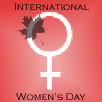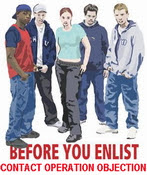MacKay meets Abbas, but there's no welcome mat
Palestinians appear to have scant interest in talks, since 'Canada's not a big player'
MARK MACKINNON / GlobeandMail 20/01/07 With a report from Carolynne Wheeler in Amman
AMMAN -- Foreign Affairs Minister Peter MacKay emerged yesterday from a tête-à-tête with Palestinian president Mahmoud Abbas with little to say after a meeting in which the Palestinian side appeared to have scant interest. ... impression was that Canada has become less friendly to the Palestinians under Prime Minister Stephen Harper. He didn't attend the Amman talks, but said that had he been in the room, he would have confronted Mr. MacKay over Canada's pro-Israel swing under Mr. Harper, and the fact Canada's policies in the region are now almost indistinguishable from those of the United States. ...
MacKay meets Abbas, but there's no welcome mat
Palestinians appear to have scant interest in talks, since 'Canada's not a big player'
MARK MACKINNON / GlobeandMail 20/01/07 With a report from Carolynne Wheeler in Amman
AMMAN -- Foreign Affairs Minister Peter MacKay emerged yesterday from a tête-à-tête with Palestinian president Mahmoud Abbas with little to say after a meeting in which the Palestinian side appeared to have scant interest.
Originally, Mr. MacKay was to meet Mr. Abbas this weekend in Ramallah, but the meeting had to be hastily rescheduled for yesterday in the Jordanian capital after Mr. Abbas decided to travel to Damascus via Amman to meet with Syrian President Bashar Assad this weekend. Hamas leader Khaled Meshaal is also expected to attend those talks.
In any event, Mr. Abbas's top aide suggested beforehand that there was little riding on the talks. He suggested that Canada's decision to cut aid to the Palestinian Authority after Hamas won control of it in elections last year, and its refusal to allow diplomats to meet with PA officials, has diminished whatever influence Canada once had in the region.
In an interview before the meeting, Rafik Husseini, Mr. Abbas's chief of staff, said that because of the 10-month-old boycott, the Palestinian side knew little about the year-old Canadian government.
"Canada is not a big player in general and because, of course, of what has happened with the [economic] siege and with the no-talk policy towards Hamas, we cannot tell the difference between the old and the new government," he said.
Mr. Husseini's impression was that Canada has become less friendly to the Palestinians under Prime Minister Stephen Harper. He didn't attend the Amman talks, but said that had he been in the room, he would have confronted Mr. MacKay over Canada's pro-Israel swing under Mr. Harper, and the fact Canada's policies in the region are now almost indistinguishable from those of the United States.
Mr. Husseini said Mr. Abbas was planning to brief Mr. MacKay on the latest developments in the Palestinian territories and on efforts by Mr. Abbas's secular Fatah faction to create a government of national unity with the Islamist Hamas movement that might be acceptable to the international community.
Those efforts are seen as key to lifting the international-aid boycott that Canada was the first country to impose. British Prime Minister Tony Blair and others have suggested that the flow of aid could resume if the new government is made up of technocrats, rather than members of Hamas. Canada, the United States and the European Union consider Hamas, which in the past dispatched dozens of suicide bombers to attack Israeli cities, a "terrorist" organization.
A national unity government could also end the violence between Fatah and Hamas that killed about 40 Palestinians in 2006.
Following the 45-minute meeting at Mr. Abbas's Amman residence, Mr. MacKay said he had come to the region largely to listen "and to look for ways we can make a positive contribution." It was strikingly similar to the justification U.S. Secretary of State Condoleezza Rice gave for her trip to the region last week, a visit that was widely ridiculed as having created little other than some photo opportunities.
"I think we have talked in very constructive and positive ways about what Canada might offer in discussions around the peace, in discussions around negotiations and the discussions that are eventually going to commence," Mr. MacKay said. "This was very much an opportunity for me to listen, and that again is behind my visit to the region. What I'm going to do, throughout my time here in the region, is meet with other important players here, that's my intention, and to listen carefully."
Mr. Abbas did not meet the media with Mr. MacKay, but his chief negotiator, Saeb Erekat, said he was convinced Canada still had a role to play, especially as it heads an international committee dealing with the issue of Palestinian refugees.
"The world is not divided between those who are pro-Israel and pro-Palestine. The world is divided between those who are pro-peace and against peace. We have seen a commitment tonight from the Foreign Minister of Canada towards the two-state solution, towards the implementation of the road map," he said, referring to the stalled U.S.-backed peace plan that envisioned the creation of a Palestinian state by the end of 2005.
Meanwhile, the Palestine News Agency said Mr. MacKay announced Canada would contribute $1.2 million to the building of the al-Muntar Crossing in Gaza, The Associated Press reported.
Mr. MacKay is to meet with Jordanian Foreign Minister Abdul-Illah al-Khatib today before travelling to Israel for talks with Prime Minister Ehud Olmert and Foreign Minister Tzipi Livni. He will also address the Herzliya Conference, a prestigious Israeli policy forum.
Saturday, January 20, 2007
call it the way you see it!
Posted by audacious at 20.1.07
Subscribe to:
Post Comments
(Atom)










































0 comments:
Post a Comment